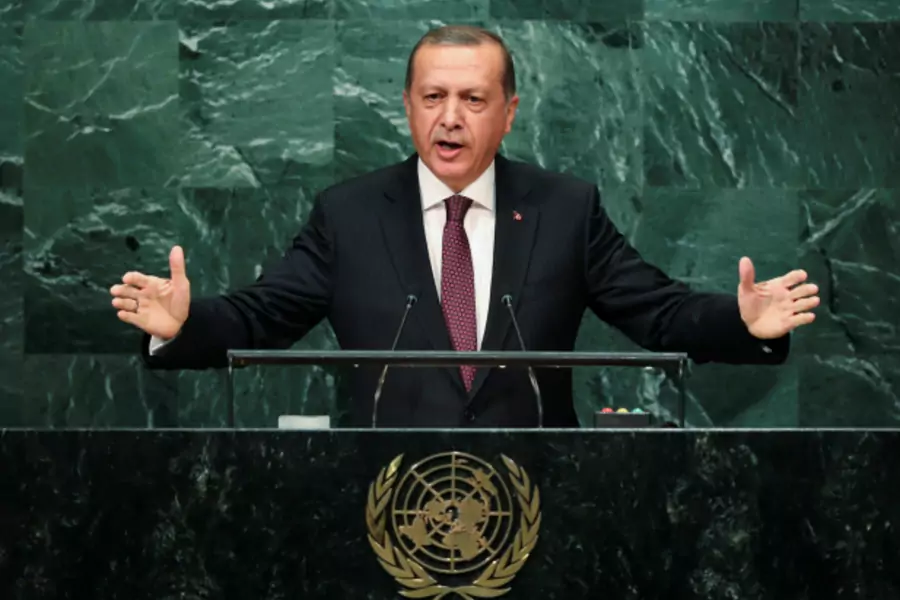Turkey: Writing “Erdo” Stories

Sometime last week, my friend Mustafa Akyol tweeted, “In Turkey, it is so easy and rewarding to give in to ‘Erdoganism’. In the West, it is also easy and rewarding to give in to anti-‘Erdoganism’.” I have been thinking about this remark ever since. The news from Turkey this summer has been relentless and virtually nonstop, beginning with the attack on Ataturk International Airport in Istanbul in late June, the failed coup about two weeks later, and the government’s ongoing purge of the military, the bureaucracy, the academy, and the media. It has been hard to take some time to reflect on the way analysts and journalists study Turkey. Has there been too much emphasis on President Recep Tayyip Erdogan at the expense of a broader and deeper understanding of what makes Turkey tick? The more I think about it, the more I find the answer to be yes, but also no. Before anyone rolls their eyes, I am not trying to have it both ways. There is indeed too much focus on Erdogan the person, but there are good analytic reasons why the Turkish leader gets so much ink.
I remember asking a friend and foreign correspondent when he was leaving Istanbul if he will miss covering Turkey. His pithy response, “Sure, but there are only so many Erdo[gan] stories one can write,” makes Mustafa’s point for him. I admit to my own fascination with the Turkish president. For many of my Turkish critics, it seems like an unhealthy and hateful obsession (to put it diplomatically), but it is actually out of respect. I do not admire him for his authoritarianism and the cult of personality that surrounds him, but Erdogan is a uniquely gifted politician—he understands the roughly 50 percent of the population that has consistently voted for him since 2007 better than anyone else and he has successfully outmaneuvered all of his opponents at different stages of his career. Those few times when I thought he was finished politically I was flat out wrong, so now I never count him out. This runs the risk of portraying the man as some type of evil genius, which, of course, he is not, but it underscores how important Erdogan is to the current moment in Turkey. He is the sun around which Turkish politics revolves. This is why he is the subject of so much reportage and commentary. That does not mean that all of this work is insightful, and Erdogan’s supporters are probably correct to suspect that at least some of it reflects personal animus. Yet his power and prestige, which are both causes and effects of his transformational tenure, make it extraordinarily difficult not to spend time meditating on Erdogan—the man—and his worldview. Under any leader, Erdogan or otherwise, Turkey most certainly would have evolved over the last thirteen years, but the country is different in unexpected and novel ways because of Erdogan himself.
More on:
I am guessing that Mustafa objects to the fact that much of the commentary on Turkey would end precisely where the previous paragraph ends. There is another part of the story, which is what his tweet was getting at. Erdogan and the Justice and Development Party (AKP) maintain a dynamic constituency, which has benefited greatly since the party first came to power in 2002. In the AKP era, Turkey’s middle class has grown, the country’s infrastructure has improved markedly, Turks have greater access to health care than before, and they also enjoy a wider range of transportation options.
Just as important as these kinds of technical and technocratic improvements is the way in which Erdogan and the AKP have allowed Turks to explore their religious identities in unprecedented ways. Previous governments would never have allowed it, either because of their fealty to Kemalism or fear of what the military might do if they relaxed the social strictures that were central to the republic’s official secularist dogma. It is not a theocracy over which Erdogan has presided, but rather a revolution in rights and personal liberties. I know that sounds crazy given that the government has recently arrested and/or purged 176,585 people, but to many Turks, Erdogan represents the freedom to don the headscarf, to be publicly pious, and to unapologetically celebrate Turkey’s contribution to civilization rather than chasing after Western norms and mores. What analysts (including this one) tend to forget in the midst of the bile and threats that Erdogan’s supporters freely dish out to us on social media, the conspiracy theorizing about the role of the United States in the failed coup, the borderline whining that Turkey’s allies have not demonstrated enough sympathy to Turkey after the putsch attempt, and the reversal of democratizing reforms is that the Turkish president is not a tin-pot dictator merely holding his people at bay through force or the threat of force, as, for example, Tunisia’s former dictator, Zine al-Abidine Ben Ali, had done. Turkey actually has a range of similar political problems to countries in the Arab Middle East, but Erdogan’s relationship to Turks is deeper, more complicated, and more interesting than, say, Abdel Fattah al-Sisi’s relationship to Egyptians.
And here we are back to Erdogan once more. Again, I am not preoccupied with him, but he is inextricably linked to the Turkish story that interests me so much. Many of his Turkish critics quietly take some comfort in the fact that Erdogan will not live forever. They should not because the consequences of his thirteen years (and counting) at the center of Turkish politics will have a dynamic effect on Turkey long after we all write our last “Erdo story.” More on that in a larger forthcoming project…
More on:
 Online Store
Online Store